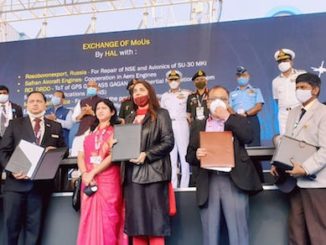
The U.S.-India relationship was often distant during the Cold War, but the partnership is now critical for both countries’ strategic aims. India is important to the U.S. effort to maintain its international primacy, while the United States is essential to India’s attainment of its great power ambitions. Deepened economic intercourse, including one day through a comprehensive U.S.-Indian free-trade agreement, is vital to realizing both countries’ aspirations.
The Case for Deeper Economic Cooperation
- The United States has consistently pursued a policy of securing hegemony, yet China now threatens the economic and geopolitical underpinnings of U.S. power.
- India, since the British Raj, has harbored aspirations for great power status and regional hegemony alongside ideals of liberal internationalism.
- Through stronger bilateral economic ties, American resources could enhance India’s productivity, expand its technological frontier, and spur further economic liberalization. Meanwhile, the United States would gain access to India’s lower-cost exports, relatively cheap labor, and vast domestic market, increasing America’s international competitiveness.
- Increased U.S. competitiveness internationally would reinforce Washington’s global primacy, permitting it to effectively balance China’s rising power. The economic benefits accruing to India from deeper economic links with the United States would advance Indian national development, regional hegemony, and international prominence.
How the United States and India Can Promote Economic Cooperation
- The United States must be willing to walk difficult roads to enhance economic cooperation with India, given that such integration is essential to its regional and international interests. While domestic U.S. constituencies have become wary of Indian economic practices and free-trade agreements more generally, they must be outweighed by larger considerations of revitalizing economic growth bilaterally and preserving U.S. global hegemony.
- India must understand that sustained economic growth hinges on expanding its global trading links, and that its prior policies of trade expansion through shallow free-trade agreements are no longer viable. Partnership with the West, particularly the United States, is critical to achieving India’s twin aspirations for national development and regional primacy. India’s existing tactic of buying time and space for domestic development without making commitments to genuine trade liberalization is counterproductive for these aims.
- A step-by-step approach to deepening bilateral trade and investment to make a free-trade agreement possible at some point in the future may be the most effective way to advance each country’s specific geopolitical interests. Such an approach would incrementally tackle challenges to a comprehensive agreement, and it would best serve India’s development aspirations and buttress the United States’ international preeminence.





Be the first to comment